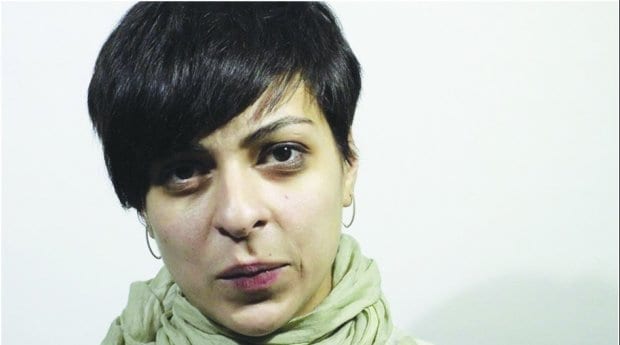With the festivities only weeks away, Pride Toronto released details about its upcoming WorldPride Human Rights Conference May 15, including the 2014 selection for international grand marshal. Each year, the organization selects an individual who has demonstrated exceptional leadership in LGBT advocacy and global human rights to march in the parade, this year on June 29.
This year’s international grand marshal is Anna Rekhviashvili, a community organizer and human rights activist from Tbilisi, Georgia.
In a press release, Shelley Craig, of Pride Toronto’s board of directors, said they are “very pleased” that Rekhviashvili will be coming to the city for WorldPride. “The courage and commitment [of the Georgian LGBT Community] to human rights in a hostile environment is an inspiration to us, and we look forward to learning from her story.”
Rekhviashvili is the community centre director at Identoba, the largest LGBT organization in Georgia. Established three years ago to focus on issues facing queer citizens, Identoba has broadened its scope to include a number of different branches of outreach and education under her leadership.
“[At the community centre], we tried to create a safe space for LGBTIQ people to get together to have public lectures or discussions or training,” Rekhviashvili says. “But now we also try to provide different services like legal aid, psychological therapy and social workers for the individuals who need it.”
The centre also offers educational sessions for young professionals who deal with LGBT people in their work, as well as public lectures for students about queer-specific topics that are often ignored at educational institutions in the country. But a key aspect of Indentoba’s work is in policy, a subject Rekhviashvili holds close to her heart. “We look at the legal situation of LGBT people in the country . . . and try to advocate for different changes,” she says. “We also try to support grassroots activism and campaigning for LGBT rights.”
Last May, Rekhviashvili helped to organize the International Day Against Homophobia and Transphobia in Tbilisi, a peaceful protest addressing discrimination in Georgia. The event was interrupted by Orthodox priests and counter protesters and became violent, leaving 17 people injured and creating massive debates about LGBT rights in the media.
With the anniversary of the protest approaching, Rekhviashvili says that conservative groups in Georgia are mobilizing to silence the free expression and assembly of LGBT people and their supporters. “The situation with LGBT people is getting more and more tense here. We’re expecting a lot of violence.”
The majority of Georgians view homosexuality as a sin and, much like in Russia, parliament recently introduced legislation that prohibits “propaganda of non-traditional sexual relations.” Rekhviashvili sees this as part of a larger form of political scapegoating and a chance for conservative politicians in the government to further their own agendas by creating a moral panic.
Still, as bleak as the situation is in her home country, Rekhviashvili views WorldPride as a chance to celebrate and share experiences.
“I definitely look forward to participating [in WorldPride] because this is a really big thing, considering the context I come from,” she says. “It’s a very different experience for me to see a huge population with a lot of people and a lot of activists discussing the issues that here we are often deprived of the opportunity to discuss.”
Perhaps most important to Rekhviashvili is the opportunity to provide an important international platform for LGBT Georgians.
“I see it as a great opportunity to represent the voice of those whose words are often unheard . . . and to bring up the issues with a certain specificity and context to [an audience] who might not be aware of them.”

 Why you can trust Xtra
Why you can trust Xtra


